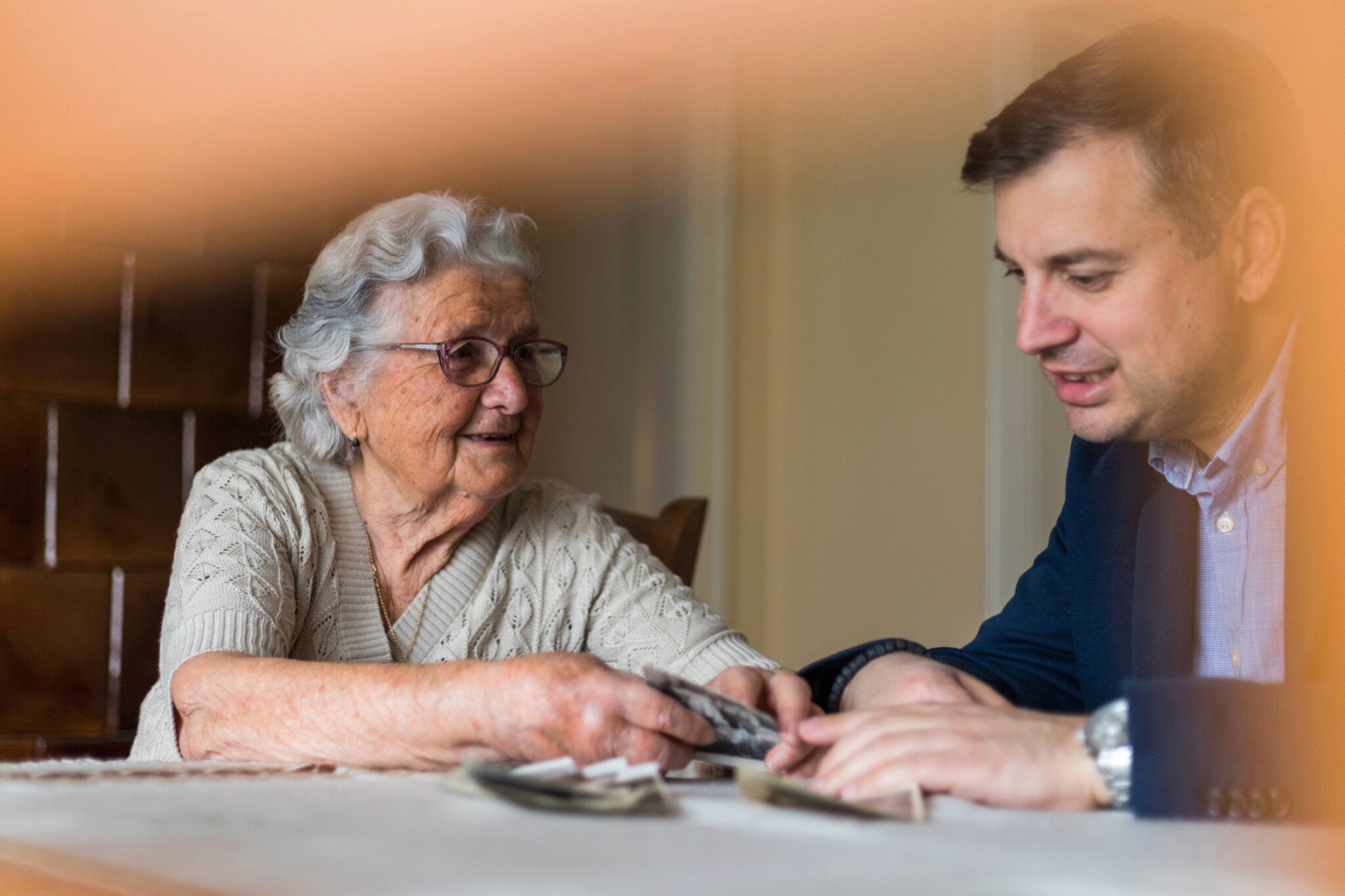
-
When her son lost his job, Margaret didn’t think twice. She wanted to help. She covered groceries, gave him gas money, and said he could stay until he got back on his feet. That was two years ago.
Now, her pension goes into a joint account her son manages. She no longer sees the bills. When she asks questions, he tells her not to worry. Sometimes he gets angry. Margaret knows he’s stressed, but she also knows something doesn’t feel right.
It started with love, but somehow it turned into something that makes her feel uneasy in her own home.
A Quiet Kind of Abuse
Many older adults find themselves in similar situations. They help a child, grandchild, or friend through a tough time. However, over time, what began as support can become control. The older person stops asking questions because it causes tension, or because they don’t want to seem ungrateful .
Financial abuse often hides in everyday life. It isn’t always about stealing. Sometimes it’s about pressure, silence, or guilt. A child says, “You owe me after all I’ve done for you.” A caregiver insists on handling all the banking. A neighbour suddenly has access to someone’s debit card. Little by little, the person with the money loses the ability to make their own choices.
Why It’s Hard to See
Most families don’t think of what they’re doing as abuse. They may be struggling too. They might tell themselves it’s temporary, that they’ll pay it back. But when an older adult starts losing control of their money, it can cause stress, confusion, and fear.
For seniors, speaking up can be challenging. Many feel embarrassed or afraid of losing family contact. Some don’t want to involve outsiders or believe they caused the problem. They may not even realize what’s happening until it’s gone too far.
What Can Help
The first step is talking about it. A quiet, respectful conversation can make a difference. Ask gentle questions: “Are you happy with how your bills are being handled?” or “Do you still see your bank statements?” These questions open the door without blame.
If something feels wrong, it helps to speak with the bank, a lawyer, or a trusted professional.
Financial institutions have staff who can check for unusual activity. Seniors can ask for statements, review their Power of Attorney documents, and make sure their accounts are set up the way they want .
It’s also helpful for families to stay involved in small ways. When more than one person is part of financial decisions, it’s harder for abuse to stay hidden.
What We Can All Do
Financial abuse doesn’t just happen inside families. It’s a community problem. Health workers, neighbours, and friends can all play a part in noticing changes and offering help. A simple check-in or a phone call can stop isolation from growing.
Protecting older adults means treating money talk as part of health and safety. We talk about fall prevention and medication safety; we should talk about financial safety, too.
Moving Forward
Margaret eventually talked to her niece, who helped her review her accounts and set new boundaries with her son. It was painful, but she says she feels more at peace now. “I learned it’s okay to help,” she says, “but not at the cost of my own security.”
Financial abuse doesn’t always look like a crime. Sometimes it looks like love that’s gone off balance. The solution begins with paying attention, asking questions, and ensuring that help never turns into harm.
Where to Get Help
- Canadian Network for the Prevention of Elder Abuse — https://cnpea.ca
- Elder Abuse Prevention Ontario — https://eapon.ca
- Seniors First BC — https://seniorsfirstbc.ca
- Government of Canada – Caregiver and Financial Resources — https://www.canada.ca/en/employment-social-development/corporate/seniors/caregiving.html
- Canadian Anti-Fraud Centre — https://www.antifraudcentre-centreantifraude.ca
- The National Council on Aging https://www.ncoa.org/
References
- “What Every Older Canadian Should Know About Financial Abuse” (Government of Canada) — https://www.canada.ca/en/employment-social-development/corporate/seniors-forum-federal-provincial-territorial/financial-abuse.html (Canada)
- “Financial Abuse of Older Adults: Training Module” (Elder Abuse Prevention Ontario) — https://eapon.ca/wp-content/uploads/2018/08/EAPO-Financial-Abuse-of-Older-Adults-Training-Module.pdf (Elder Abuse Prevention Ontario)
- “Report on Vulnerable Investors: Elder Abuse, Financial Exploitation, Undue Influence and Diminished Mental Capacity” (FAIR Canada & Canadian Centre for Elder Law) — https://faircanada.ca/wp-content/uploads/2022/02/REPORT-ON-VULNERABLE-INVESTORS-ELDER-ABUSE-FINANCIAL-EXPLOITATION-UNDUE-INFLUENCE-AND-DIMINISHED-MENTAL-CAPACITY.pdf (FAIR Canada)
- “Financial Abuse of Seniors: An Overview of Key Legal Issues and Concepts” (Canadian Centre for Elder Law) — https://www.bcli.org/sites/default/files/CCEL_Background_Paper_Financial_Elder_Abuse_2013_0.pdf (BCLI)




Leave a Comment